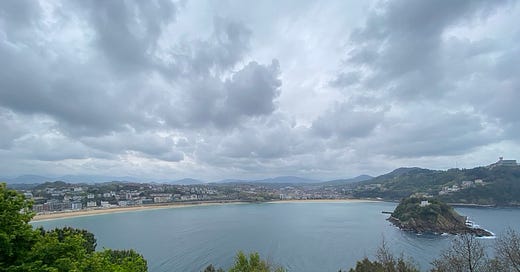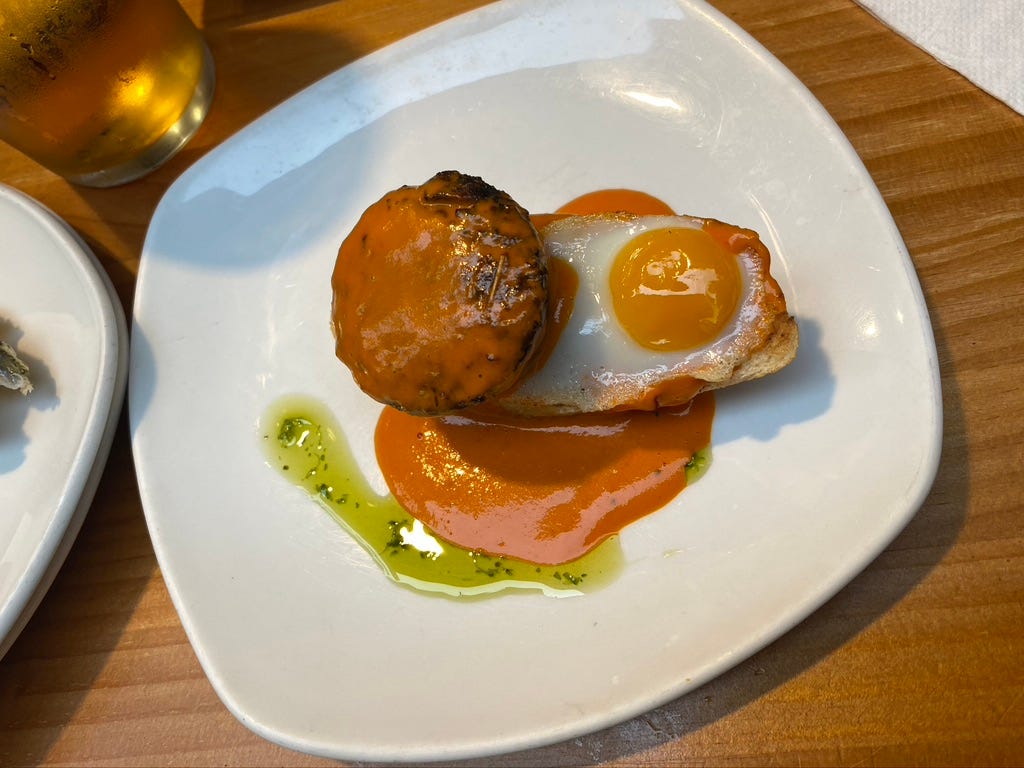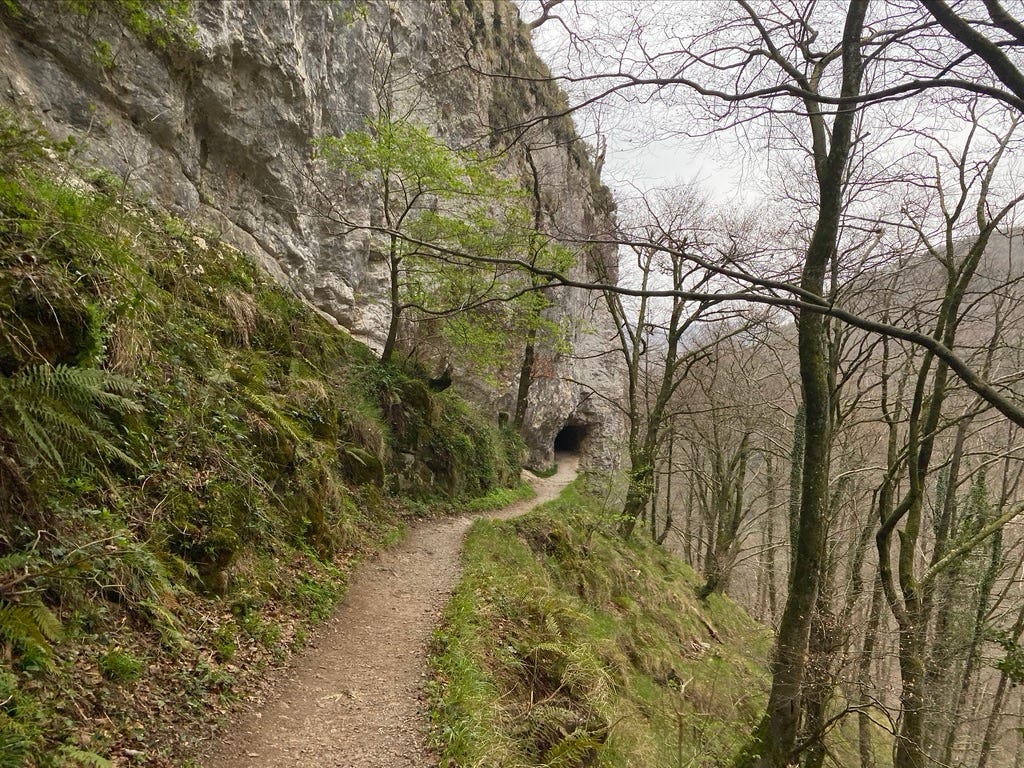When I was 19 I began making what I consider my first real effort at writing. I did not keep a regular practice or have much idea of how to write well, but I had what I thought was the idea for the next great American novel. Just as important as my idea for the novel was the place I got the idea to try to write at all: namely, all the Ernest Hemingway I’d been overdosing on, as one does at 19.
In today’s culture you’re supposed to be embarrassed by liking Hemingway, from what I gather. Whatever. It’s fine if you were put off by assigned readings of “Hills Like White Elephants” or “The Snows of Kilimanjaro,” but for the most part I think we can do less moralizing about our art. I’m not a weirdo who complains about cancel culture but I do think one puritanical streak we should probably do away with is demanding our consumption perfectly match our mores. (“Am I a bad [socialist/feminist/Democrat/person] if I like x thing?” is a question that annoys me and breaks my heart in equal measure.)
Anyway this is all to say that if you do anything at all that gives you a sense of purpose, you probably got inspired to do that by somebody, or a few somebodies. One of my somebodies has been Hemingway since I was a teenager. And a secondary effect of all that reading of his stuff I was doing back then was that I didn’t just want to write, I also wanted to travel: to Montana, to Cuba, to Paris, and most of all to Spain. Through his words, from an ocean away, I fell in love with the dusty hills, the pine-forested mountains, the skins of wine, the tempestuously emotional people of that country.
“Do they have people such as this in other countries?”
“There are no other countries like Spain,” Robert Jordan said politely.
“You are right,” Fernando said. “There is no other country in the world like Spain.”
“Hast thou ever seen any other country?” the woman asked him.
“Nay,'' said Fernando. “Nor do I wish to.”
A few months ago my wife and I decided to plan a trip to Europe over my spring break. For me, it was easy to narrow a continent of choices down to one country, and narrow that country down to the Basque region in which so much of the action I’d read about took place.
I narrowed the list down even further thanks to another of my somebodies, Anthony Bourdain, whose “Parts Unknown” episode in San Sebastián (rightly) makes the food there look like some of the best in the world. The town has the densest collection of Michelin-starred restaurants in Europe, despite—or perhaps because of—a cultural suspicion toward heavy seasonings and spices.
Of course, reading about and watching shows about things is no substitute for actually going to do them, which was of course the raison d’etre for the trip to begin with. And having no imagination beyond aping the exploits of others is no recipe for a fulfilling life: you have to take your inspiration where you can get it, but you also have to synthesize it with your own ideas, lest it ring completely hollow.
This is as true for writing as it is for exploring. My Great American Novel never became much of anything in large part because my writing at that time was almost exclusively a ripoff of the Hemingway style, with a little bit of Hunter S. Thompson slapped on here and there; I had very little substance to work from, and style can only carry you so far. A necessary step in any writing life, this mimicry, but you have to move past it before you can do anything worthwhile.
Anyway, it was settled: we would spend a week together in San Sebastián. San Sebastián is called Donostia in Euskara, the Basque language, which is a language isolate—one with no identifiable connections to any extant European tongues. To be honest with you I have no idea how that happens. I mean for the purposes of writing this newsletter I read the Wikipedia explanation of language isolates, but I still have a hard time imagining how a whole unique language can arise and persist for millennia while resisting the influence of the Romance languages that border it on all sides.
Because of this linguistic anomaly, many of the places we ate had menus in some combination of Spanish, Euskara, English and French. It’s hardly a novel observation, but it did make me think about how interesting our lives in the United States would be if American states had their own languages the way comparably-sized European nations do. At minimum Americans would perhaps be a little more worldly if we had to speak a different language every time we crossed from Washington to Oregon or New York to Pennsylvania or Ohio to Michigan.
To write or to travel you have to carry with you a little bit of naive arrogance: a commitment to the idea that you don’t know what you’re doing, but you’re going to figure it out. As long as you accept going in that you will need to be humbled before too long, probably several times, I think you’ll be alright.
On one of the hikes we took during the week, up along the coastal cliffs, our route overlapped in several places with El Camino del Norte, one of the seven traditional pilgrims’ paths through Spain. Strange, to be putting our feet on a dirt path first trod a thousand years ago. Dazzled as I was by the color of the ocean and the scope of the hills, I tried my best to keep some of my focus on the ground. In those hours I felt a real sense of connection with people who lived and died in centuries long past, walking this same route in their bare feet or rope-soled peasant shoes. How many of them stumbled over the same rock as me, sat in the shade of the same pine forest, looked out with wonder at these same breaking waves? It collapses time to walk in such a place.
Still, time passes. Along the Camino we passed several segmented ruins of an aqueduct, which delivered water through these hills who knows how many hundred years ago. Like language isolates I get the broad strokes of how an aqueduct works, although the technicalities mystify me still. It’s good to be humbled by travel, like I said.
It feels like it’s been a long time since I wrote one of these missives and I don’t know if all these jumbled thoughts make sense in the order I’ve put them in. I’m still getting my brain back in order, post-travel, so I hope you’ll excuse the rambling. Either way it feels good to be writing to you all again.
Thanks (or “gracias,” as they say in Spain), as always, for reading. I’ll talk to you next week.
-Chuck
PS - If you liked what you read here, why not subscribe and get this newsletter delivered to your inbox each week? It’s free and always will be, although there is a voluntary paid subscription option if you’d like to support Tabs Open that way.








Loved this post. What 20th century male who read books didn't have a Hemmingway moment? No one should have to apologize for enjoying what they read. Sounds like you guy's had a great trip!
¡Bien hecho!